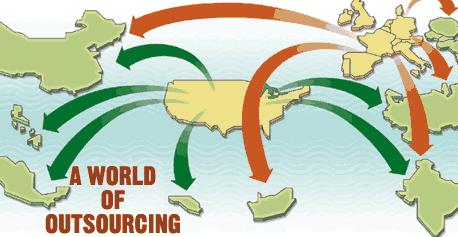This is the latest in our ongoing series of articles on outsourcing, benefits and downfalls. By Lou Covey Editorial Director
Outsourcing product design and manufacturing has become an international way of life despite the concern that it takes jobs  away from one country in favor of another. As the practice has matured, it has become more of a zero-sum game as long as the participant realize it is best as a cooperative exercise.
away from one country in favor of another. As the practice has matured, it has become more of a zero-sum game as long as the participant realize it is best as a cooperative exercise.
The decision to outsource any part of a product lifecycle is not longer a matter of which country a company will choose, but which countries to choose. High precision work is still the realm of the United States with Western Europe a close second. Mass production of mid-quality products is an acceptable choice, even though costs are starting to rise. And Central Europe is rising as the choice for high-quality, low-cost software design.
In the end, companies have a much greater choice in how and where they choose to put together their products and services and it tends to result in jobs all around the world.
We spent some time talking to George Slawek, the managing partner of the software outsourcing company Eurocal Group , which features management , customer relations and sales in the United States, combined with software developers in Poland. We found he sees business as not either/or. He says Poland offers options not available elsewhere, but are not the be-all and end-all or options. You can listen to the 10 minute discussion here.
http://www.spreaker.com/user/footwashermedia.com/outsourcing-has-benefits-for-all
(Full-disclosure: Footwasher Media provides consultation to Eurocal Group on content and marketing strategy)
